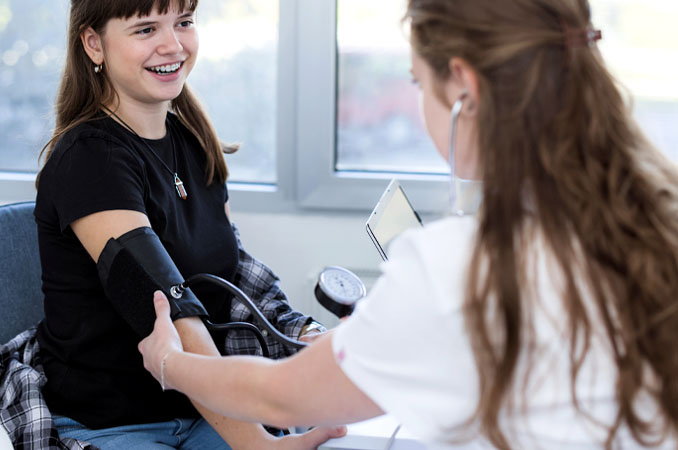
The Importance of Colon Cancer Screenings
Colon Cancer Screenings
Colon cancer is a serious disease, but it's highly preventable and treatable with early detection. Regular colon cancer screenings can help detect the disease early or even prevent it from developing in the first place. Blue Cross & Blue Shield of Mississippi's Healthy You! wellness benefit provides this screening to covered Members age 45 and older. Talk to your doctor about your individual risk factors and the best screening options for you. Don't wait until you experience symptoms to get screened – early detection can save lives.
If you don’t have a Blue Primary Care Provider, click here to find one close to you.
Early Detection Can Save Lives
Colon cancer is one of the leading causes of cancer deaths worldwide, and early detection through regular screenings can help save lives. According to the American Cancer Society, about 1 in 23 men and 1 in 25 women will develop colon cancer in their lifetime. However, this disease is highly preventable and treatable with early detection.
Regular colon cancer screenings can help detect colon cancer early, when it is most treatable. In fact, the five-year survival rate for people with early-stage colon cancer is about 90%. However, if the cancer has spread to other parts of the body, the five-year survival rate drops to about 14%. People with a family history of colon cancer or other risk factors may need to start screening earlier or get screened more often. It's important to talk to your doctor about your individual risk factors and the best screening options for you.
Symptoms
Colon cancer starts in the colon or rectum, which are part of the large intestine. Colon cancer usually develops slowly, over a period of several years, and often starts as a small, noncancerous polyp. However, if left undetected and untreated, these polyps can become cancerous and spread to other parts of the body. Symptoms of colon cancer include changes in bowel habits, abdominal pain, blood in the stool, and unexplained weight loss. However, many people with colon cancer do not experience any symptoms in the early stages, which is why regular screenings are so important.
Types of Screening Tests
There are several types of colon cancer screenings, including colonoscopies, stool tests, and flexible sigmoidoscopies. A colonoscopy is considered the gold standard for colon cancer screening because it allows doctors to view the entire colon and remove any polyps found during the procedure. Flexible sigmoidoscopies are similar to colonoscopies but only examine the lower part of the colon. Stool tests, such as fecal immunochemical tests (FIT) and fecal occult blood tests (FOBT), detect blood in the stool, which can be a sign of colon cancer.
In addition to detecting colon cancer, screenings can also help prevent it by allowing doctors to remove polyps before they turn into cancer. This can significantly reduce your risk of developing colon cancer. Keep in mind, screening tests by definition are used to look for disease when a person doesn’t have symptoms. Once you have symptoms, it’s considered a diagnostic test.
Further Reducing the Risk
It is also important to note that certain lifestyle choices can increase the risk of colon cancer. These include a diet high in red meat and processed foods, lack of physical activity, obesity, smoking, and heavy alcohol consumption. To help prevent colon cancer, you can make lifestyle changes such as increasing physical activity, maintaining a healthy weight, and eating a balanced diet rich in fruits, vegetables, and whole grains.
We recommend you also speak with your doctor about scheduling regular colon cancer screenings. Early detection and prevention are crucial in the fight against colon cancer, and regular screenings can help catch the disease early when it is most treatable.
Sources:
American Cancer Society. (2022). Colorectal cancer: facts & figures 2022-2024.
National Cancer Institute. (2021). Colorectal cancer screening (PDQ)–Health professional version.
Mayo Clinic. (2021). Colon cancer: Symptoms and causes.
Centers for Disease Control and Prevention. (2021). Colorectal cancer screening.




 Women's Health
Women's Health Eat Healthy
Eat Healthy Exercise
Exercise Health & Wellness Articles
Health & Wellness Articles